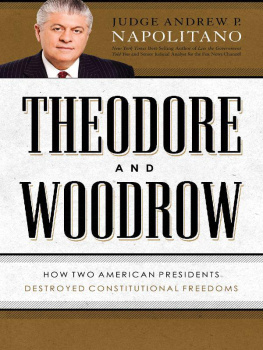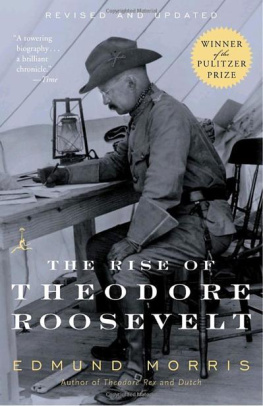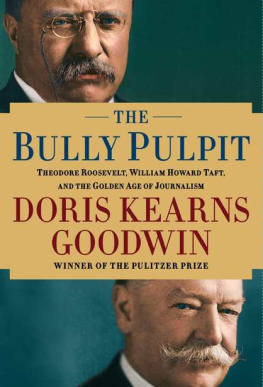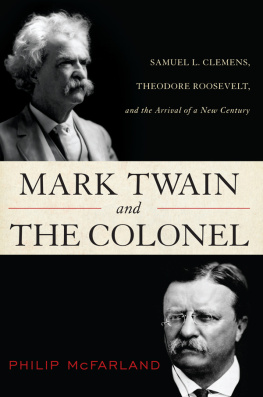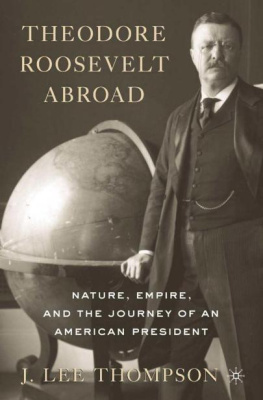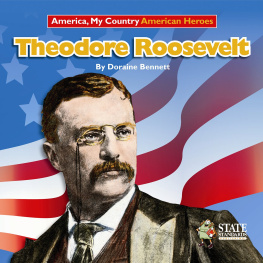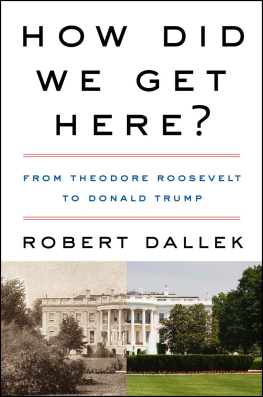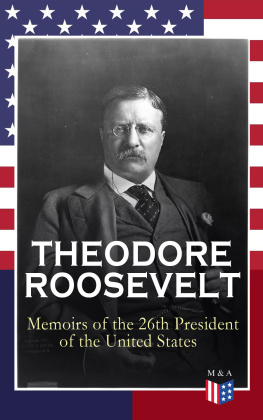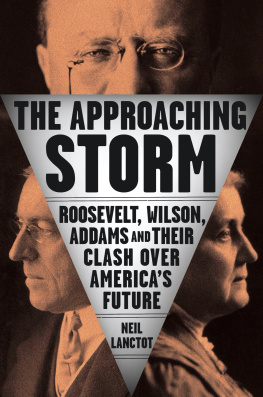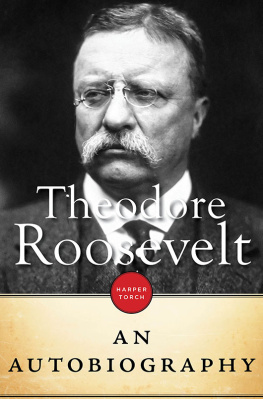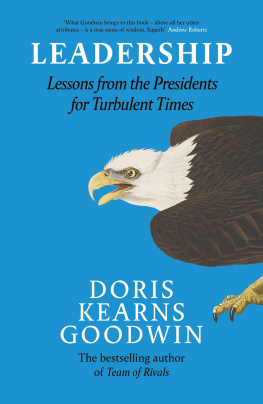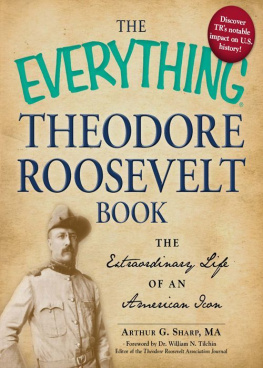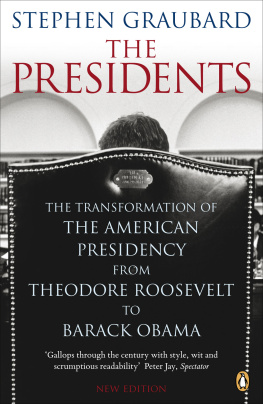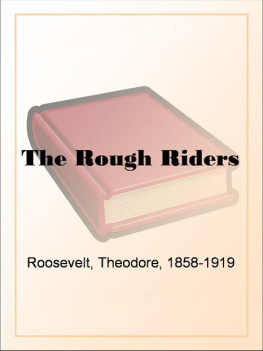THEODORE
AND
WOODROW
Also by Andrew P. Napolitano
Constitutional Chaos: What Happens When Government Breaks Its Own Laws The Constitution in Exile: How the Federal Government Has
Seized Power by Rewriting the Supreme Law of the Land A Nation of Sheep Dred Scotts Revenge: A Legal History of Race and Freedom in America Lies the Government Told You: Myth, Power, and Deception in American History It Is Dangerous to Be Right When the Government Is Wrong: The Case for Personal Freedom
THEODORE
AND
WOODROW
HOW TWO AMERICAN PRESIDENTS
DESTROYED CONSTITUTIONAL FREEDOM
ANDREW P. NAPOLITANO

2012 by Andrew P. Napolitano
All rights reserved. No portion of this book may be reproduced, stored in a retrieval system, or transmitted in any form or by any meanselectronic, mechanical, photocopy, recording, scanning, or otherexcept for brief quotations in critical reviews or articles, without the prior written permission of the publisher.
Published in Nashville, Tennessee, by Thomas Nelson. Thomas Nelson is a registered trademark of Thomas Nelson, Inc.
Thomas Nelson, Inc., titles may be purchased in bulk for educational, business, fundraising, or sales promotional use. For information, please e-mail SpecialMarkets@ThomasNelson.com.
Library of Congress Cataloging-in-Publication Data
Napolitano, Andrew P.
Theodore and Woodrow : how a Republican and a Democrat destroyed constitutionally protected freedoms / Andrew P. Napolitano.
p. cm.
Includes bibliographical references and index.
ISBN 978-1-59555-351-5 (alk. paper)
1. Liberty--History. 2. Federal government--United States--History. 3. Constitutional history--United States. 4. Roosevelt, Theodore, 1858-1919. 5. United States--Politics and government--1901-1909. 6. Wilson, Woodrow, 1856-1924. 7. United States--Politics and government--1913-1921. I. Title.
JC599.U5N265 2012
323.0973--dc23
2012015462
Printed in the United States of America
12 13 14 15 QGF 6 5 4 3 2 1
This book is dedicated to
Congressman Ron Paul, Whose intellect, industry, heart, and head Have educated millions on the
Loss of liberty because of big government;
And whose personal courage and fearless determination Have made him a hero To lovers of Freedom everywhere on the planet, And a profound personal inspiration to me.
The makers of our Constitution undertook to secure conditions favorable to the pursuit of happiness.... They sought to protect Americans in their beliefs, their thoughts, their emotions and their sensations. They conferred, as against the government, the right to be let alonethe most comprehensive of rights and the right most valued by civilized men.
J USTICE L OUIS D. B RANDEIS
Government is not the solution to our problem, government is the problem.
P RESIDENT R ONALD R EAGAN
To tamper with mans freedom is not only to injure him, to degrade him; it is to change his nature, to render him, in so far as such oppression is exercised, incapable of improvement; it is to strip him of his resemblance to the Creator, to stifle within him the noble breath of life with which he was endowed at his creation.
F REDERIC B ASTIAT
Personal property... is subject to the general right of the community to regulate its use to whatever degree the public welfare may require it.
T HEODORE R OOSEVELT
[W]e are not bound to adhere to the doctrines held by the signers of the Declaration of Independence.... Government does now whatever experience permits or the times demand.
W OODROW W ILSON
Contents
My first exposure to Woodrow Wilson was an example of three degrees of separation. As an undergraduate at Princeton University in the late 1960s and early 1970s, a university at which Wilson once taught and over which he once presided as the schools president, I was steeped in the campus lore that he was a great man who saved America from the evil rich who would have kept us all in bondage. I even studied under a professor who studied under a professor who learned from Professor Woodrow Wilson himself.
My intellectual introduction to Wilson was courtesy of Professor Arthur S. Link, who was then and, though now deceased, still is today the academically recognized foremost scholar of Woodrow Wilson. Professor Link, who edited the massive Papers of Woodrow Wilson , spent his entire professional career studying, writing, and lecturing on Wilson. Professor Link, a charming, crewcut, pipe-smoking, tweed-wearing liberal, loved his subject. And he taught his students to do the same.
I have always challenged authority; just ask my parents, brothers, teachers, professors, and even the appellate judges who reviewed my work when I was on the bench. So the good Professor Link, who admitted me as an undergraduate to his graduate student courses, usually reserved for those intending to become professional historians, did not succeed with me.
I believed as a student, studying in the same majestic halls where Woodrow Wilson taught and administered, that Wilson sapped personal liberties, brought America into a useless and highly destructive war, trampled the sovereignty of the states, and institutionalized central economic planning mechanisms in ways that have diminished personal freedoms, reduced opportunities for prosperity, and created a large class of human beings dependent on the government. Though Professor Link never told us, Wilson as president was an old, stiff, cold academic who really believed he was smarter than anyone else in government. He was prepared to bend any rule, avoid any constitutional principle, and crush any individual liberty for what he believed was the common good.
Theodore Roosevelt was not much different, except that he could hardly be called stiff and cold. He was the life of any party he attended, joined, or created. But he also thought that the Constitution was just a guideline, rather than the Supreme Law of the Land as it declares itself to be. I had no youthful romantic familiarity with or adolescent revulsion of Theodore Roosevelt, as I did with Woodrow Wilson. On the contrary, his robust manliness, love of athletics, and nominal Republican roots were appealing to those who influenced my youth.
Interestingly for me, my studies of Wilson under Professor Link exposed me to Wilsons counterpart in the sport of assaulting the Constitution in the name of Progressivism. At a young age, I remember asking, What is with these Roosevelts? They just wanted to control human life and plan it out for us from the White House.
Theodores distant cousin, Franklin, is, in my view, second only to Lincoln in the degree of presidentially caused harm to constitutional government and personal freedoms in America; but it was Theodore who paved the way for Franklin to do what he did. It was Theodore Roosevelt whoin moments that today would be compared to Nixon going to Chinawas a traitor to the values of those who selected and elected him. It was Theodore Roosevelt who first made it acceptable for Republicans to desert their small-government roots, to trample federalism, and to fight wars of imperialism. It was also Theodore Roosevelt who fervently believed that there was no problem too small, no wish too unrealistic, no principle of law too well-grounded or restrictive to prevent him from using the federal government to address whatever he wished, on his own, from the White House.
You can see where we are going in this book. This is not a biography of either Wilson or Roosevelt. It does not purport to present them fairly. This is, quite simply, a case against them. A case you have not seen if you were educated in Americas public schools; a case you will appreciate if you think the federal government today is too big and too rich and too controlling, and if you want to understand how it got that way; a case that would have scandalized the amiable Professor Link.
Next page
